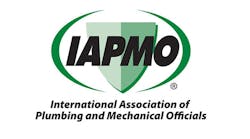Latest from Codes
Sponsored
The California Air Resources Board (CARB) has withdrawn its request for an EPA waiver to enforce its Advanced Clean Fleets (ACF) rule. The withdrawal means CARB is now no longer seeking to enforce its zero emissions vehicle mandate on fleets.
CARB withdrew its waiver request as part of its preparation for a drawn-out struggle with the incoming Trump Administration. During his presidential campaign, Donald Trump spoke out against such mandates.
Background
Under the Clean Air Act, California has the unique freedom to set its own emissions standards that exceed EPA's. However, CARB needs a waiver from EPA before it can enforce the regulations.
The ACF is a controversial zero-emission vehicle mandate directly targeting fleets. The regulation requires certain fleets to phase-in zero-emission vehicles and, by 2036, requires manufacturers to only manufacture zero-emission trucks.
On Dec. 18, 2024, the EPA granted California the waiver for CARB’s Advanced Clean Cars II (ACC2) regulation, which will require an increasing number of new light-duty vehicles sold to be zero-emission vehicles, all of them by 2035.
The HD Omnibus (low NOx combustion) waiver request was granted simultaneously.
The Omnibus regulation will cut heavy-duty NOx by 90% and extend the warranty for emissions equipment. Numerous other states have adopted the California Omnibus regulation, including Colorado, Massachusetts, New Jersey, New Mexico, New York, Oregon, Rhode Island, Vermont and Washington.
The Advanced Clean Trucks (ACT) is still in effect and calls for OEMs to sell increasing percentages of zero-direct-emission trucks through model year 2035. In those states with an effective date of 2025, 7% of new truck sales must be zero-emission trucks beginning Jan. 1, 2025.
Other states have adopted the ACT regulations, which the EPA allows if the states do not alter the rule in any manner.
The ACF and ACT rules were always meant to work together. The ACT would force OEMs to build ZEVs, and the ACF would force fleets to buy them. Each rule needed an EPA waiver as it exceeded federal emissions regulations. The ACT waiver was previously granted.
Reactions
Upon withdrawal of the waiver request, CARB Chairperson Liane Randolph said in a statement:
While we are disappointed that US EPA was unable to act on all the requests in time, the withdrawal is an important step given the uncertainty presented by the incoming administration that previously attacked California’s programs to protect public health and the climate and has said will continue to oppose those programs.
NTEA, an association advocating for the work truck industry also issued a statement saying in part:
While this move on California’s part should be viewed cautiously as a positive development, NTEA believes the fight is not over.
The work truck industry needs ironclad assurances from the State of California that it will neither enforce the current ACF rule nor revise it in an attempt to circumvent the EPA waiver process.
In October, NTEA joined the Specialty Equipment Market Association (SEMA) to sue California over the ACF rule. In light of the legal challenges and the incoming Trump Administration, California recognized that its current regulatory approach via the EPA waiver process would not work...
NTEA expects the Trump EPA to roll back the last-minute ACC2 and Omnibus waivers as well as the previously granted ACT waiver. Presumably, California and the backers of such rules will challenge those repeals.
NTEA’s concern is that California’s withdrawal of the ACF waiver request to the EPA is merely a strategic attempt to preserve what it believes to be its ability to enforce the rule (or some alternative version) without needing a waiver as California still has federally mandated air pollution requirements, and state greenhouse gas reduction mandates.
NTEA supports reasonable, achievable and realistic environmental regulations. CARB's recent truck rules are none of those things, and as a result, our lawsuit. NTEA is currently evaluating the effects on our lawsuit opposing the ACF regulation in light of the EPA waiver withdrawal.
CONTRACTOR will continue to report on this developing story.


